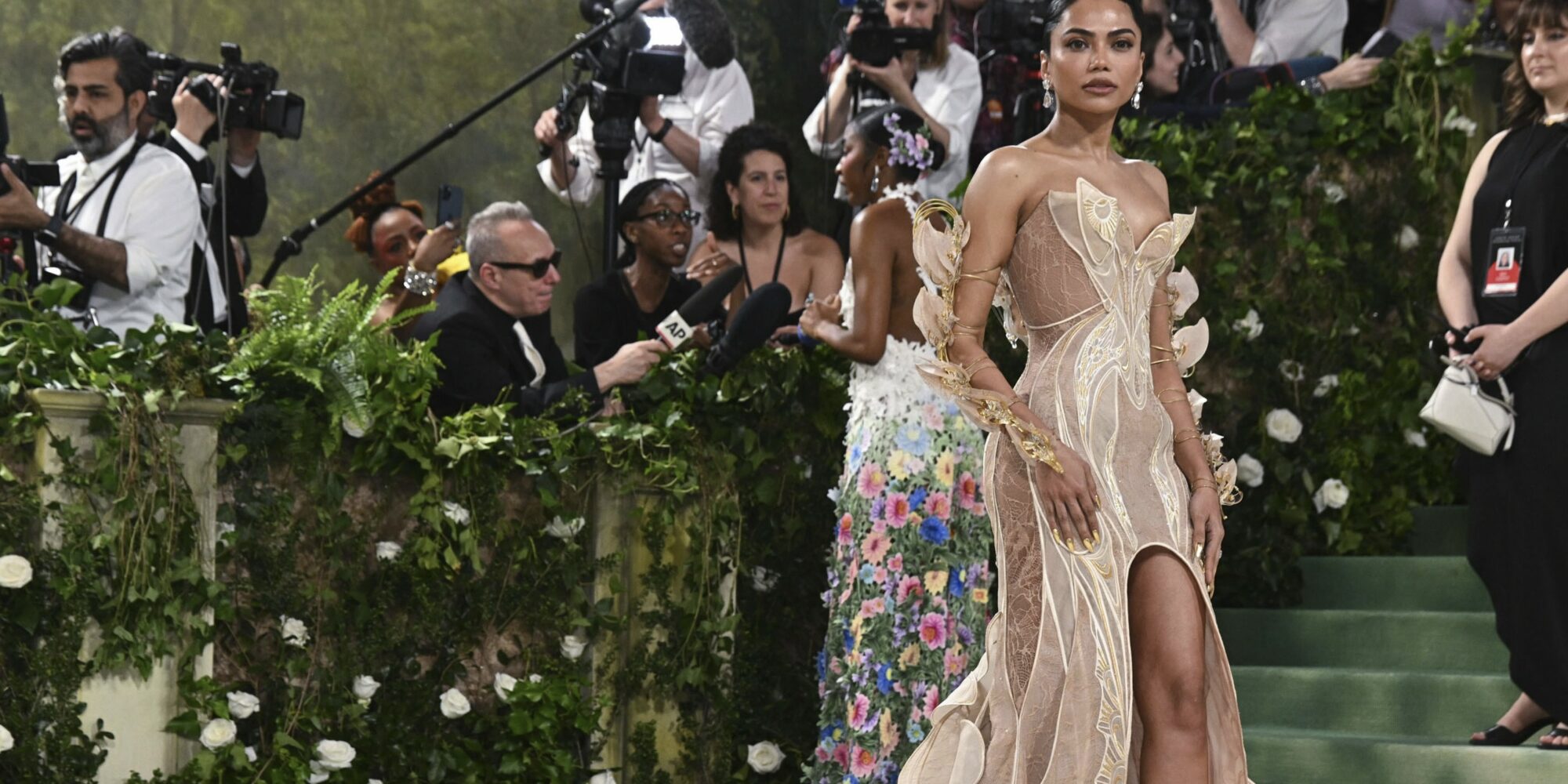
How Indie Beauty Brands Can Navigate #Blockout2024 Without Getting Blocked
Standing in stark contrast to the devastation in Gaza and even the everyday squeeze American consumers feel on their wallets, the opulence of the star-studded Met Gala last week was met with distaste in some corners of social media, birthing #blockout2024, a new online movement calling for people to block celebrities, celebrity brands and brands associated with celebrities and influencers.
The movement, which has manifested in various forms, including shunning celebrities who haven’t been vocal about the ongoing conflict and humanitarian crisis in Gaza and simply blocking all celebrities perceived not to be doing good for humanity, is the latest instance of the social media masses trying to harness the power of large-scale platforms to shape the attention and consumer economies. In a previous example, the #deinfluencing trend on TikTok last year saw content creators telling people what products they shouldn’t buy, no matter how many influencers claim they can’t live without them.
For brands that have flocked to TikTok for awareness and sales, #blockout2024 provides yet another case for the perils of popular sentiment that can swing at any moment. It also demonstrates the sensitivity of pushing products viewed as lavish or extravagant in an environment characterized by consumer caution. According to several surveys of gen Zers—a recent one is identity verification company Sheer ID’s of 1,761—the group is sour on the economy and penny-pinching as a result. In Sheer ID’s survey, a mere 22% of gen Z college students reported optimism about the future of the economy.
Believed to have started the blocking movement, a user with the TikTok handle blockout2024, which has over 180,000 followers and 4.3 million likes on the platform, declares, “We have full control over celebrities’ lives. The amount of attention we give them and the amount of engagement we give them is their direct currency. Take it from them.”
“We gave them their platforms. It’s time to take it back.”
The blocking movement is aligned with a demand for “digitine,” a portmanteau of digital and guillotine coined by Tiktok user ladyfromtheoutside in response to a pre-Met Gala video from influencer Haley Kalil showing her in an elaborate floral ensemble inspired by Marie Antoinette. In the now-deleted video, Kalil lip-syncs to Kirsten Dunst saying “let them eat cake” as the titular character of director Sophia Coppola’s 2006 movie “Marie Antoinette.” The video has been roundly criticized as, at best, tone deaf.
Presenting the idea of a digitine in a TikTok video with over 2.5 million views, ladyfromtheoutside says, “It’s time to block all the celebrities, influencers and wealthy socialites who are not using their resources to help those in dire need. We gave them their platforms. It’s time to take it back, take our views away, our likes, our comments, our money.”
There are now over a dozen TikTok accounts with usernames that are a play on Blockout2024, and TikTok content creators generally are posting to broadcast the celebrities they’re blocking. Along with Kalil, Kim Kardashian, Taylor Swift, Selena Gomez, Justin Bieber, Drake, Beyoncé and Zendaya are among the celebrities TikTok users are blocking. Brands like Gomez’s Rare Beauty and Ariana Grande’s R.e.m. Beauty are being blocked, too.
Heidi Kaluza, a social media consultant, head of sales at resale listings startup In The Loop AI and founder of sustainable lifestyle brand The Rogue Essentials, argues #blockout2024 isn’t just about damaging the celebrities’ bottom line. She says, “It’s to bring topics that desperately need our attention to the forefront, which tend to be drowned out by big marketing spends on social media platforms like Instagram that favor a QVC-like experience for their users.”
@ladyfromtheoutside #greenscreen #greenscreenvideo #digitine #digitalguillotine #haleyybaylee
The #blockout2024 movement has encountered a smattering of resistance from two camps. Detractors either criticize it for being performative activism or for being misplaced activism that won’t make difference. Kaluza contends digital initiatives such as #blockout2024 can impact influencer marketing. She says, “There has already been a shift in the way brands are utilizing influencers, opting for longer term partnerships, more authentic creators and a return to brand marketing. The digitine feels like an extension of that phenomenon which has already been occurring.”
Kaluza continues, “Smaller businesses and ad agencies often make the mistake of modeling influencer programs off of fast beauty examples, when they are most likely better served by working long term with authentic creators they trust. Traditional digital advertising is on the decline and one of the answers is to genuinely lean into your community. The talent you need is most likely already there.”
Bethany Paris Ramsay, a beauty brand marketing and communications consultant and founder of the agency Honey B, posits the Met Gala’s excess and the online content deluge it spawned may be a cultural tipping point that ups the ante for authenticity, a word that’s been bandied about so much it has little meaning. “We may finally be starting to see ‘what goes up must come down’ happening in real life regarding celebrity culture,” she says, adding about authenticity, “I know that word is so overused, but the desire is very real. Think about on Instagram when we started seeing photo dumps. They’re the direct opposite of highly stylized and over-edited photography.”
For beauty and wellness brands intent on “reading the room” in the current climate, Ramsay recommends focusing on nurturing and listening to their audiences. “Bring them into your brand in real ways,” she offers. “Amazing examples of brands already doing this are Topicals, Refy, Glow Recipe and Bread or Ouai paying attention and launching a product that’s been requested over and over again by their audience. There’s so many opportunities to connect in real ways.”
Brands considering shelling out for big influencer or celebrity partnerships may want to reallocate their money. “Not the move,” warns Ramsay. “Consider smaller creators. Consider your best customers. The entire Met Gala felt wrong to people this year. When Vogue posts a Kardashian or Jenner to Instagram now, check the comments. Everyone’s had enough.”
Kaluza suggests brand founders remind themselves of the deeper “why” of their businesses. “I would challenge those businesses to think about what…their business stands for and create a marketing/engagement strategy that reflects that,” she says. “This movement is meant to balance the scales, create room for compassion in commerce and hold space for those most marginalized.”





Leave a Reply
You must be logged in to post a comment.